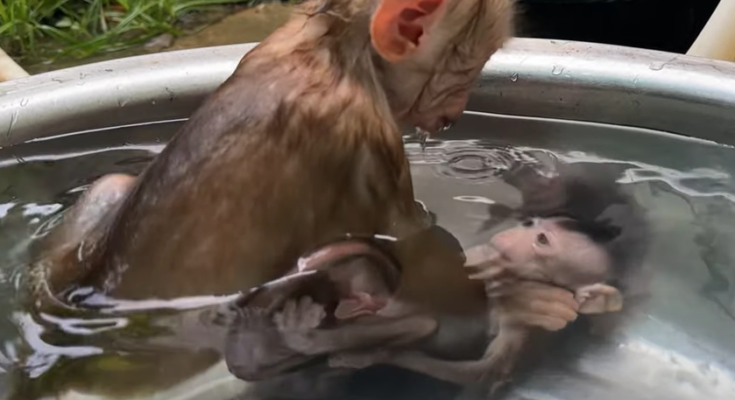Baby monkeys, like many mammals, exhibit a natural ability to swim shortly after birth. This innate skill, known as the “swimming reflex,” allows baby monkeys to paddle and stay afloat in water. The reflex is most prominent in the early months of life and typically diminishes as the infant grows older and becomes more reliant on their mothers for protection and mobility.
The swimming reflex in baby monkeys is believed to be an evolutionary adaptation for survival. In the wild, monkeys may encounter water bodies such as rivers, lakes, and streams. The ability to swim can help them escape predators, reach food sources, or simply navigate their environment more effectively. This reflex is not exclusive to monkeys; many other mammal infants, including human babies, also demonstrate a similar ability to swim instinctively.
However, while baby monkeys can swim for short durations, they are not suited for prolonged swimming sessions. Their stamina and strength are limited, and they can quickly become fatigued. As a result, they should not be left in the water for extended periods without supervision. Additionally, the swimming reflex is just that—a reflex. It does not equate to proficient swimming skills or the ability to navigate complex water currents.
As baby monkeys grow older, their reliance on the swimming reflex decreases, and they develop other skills necessary for their survival. Climbing, foraging, and social behaviors become more critical as they integrate into their troop and adapt to their terrestrial environment. While swimming can be a fun and stimulating activity for baby monkeys, it is not a primary mode of movement or survival for them in the long term.
